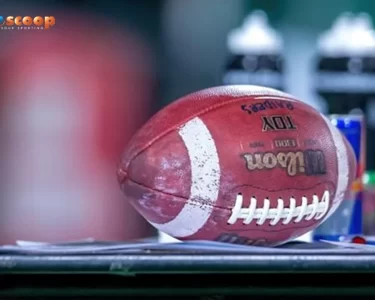Very few changes in football have been as controversial and transformative as the introduction of VAR, or Video Assistant Referee. For the longest time, football was a game ruled solely by human decisions that would often spark debates among players, coaches, fans and experts. To clear any doubt about who’s right or wrong, the sport reached out to the latest technology that will forever settle the disputes. Years later, the opinions are still split. On one side, we have some fans and players claiming that the VAR system brought fairness and clarity to the game, while others believe the system took out the thrill of the game by eliminating the joy and pain that comes with human errors. Either way, VAR impacted many aspects of football, from decision making process and match outcomes to changing culture and the spirit of the game.
The Promise of Fairness
The initial excitement of introducing VAR as part of every match was simple: use the latest technology that will particularly benefit bettors on various online platforms, and crypto sportsbook, to reduce reliance on humans and correct possible mistakes. In practice, this meant that wrongly denied goals or a missed penalty could now be reviewed and fixed, which sounded like a win for all sides since we wouldn’t have events like players being punished or teams losing titles by bad calls.
VAR worked like a charm, doing exactly what it promised. Offside goals are not tolerated anymore since we can watch it happening frame by frame and deny the score. Red cards were also given after closely reviewing VAR, and some penalties were overturned that could’ve changed the result.
Supporters of VAR argue that football needs to keep up with modern technology, just like other sports such as tennis and cricket have done, believing that fans deserve fair play and true outcomes. If we look only at the statistics, VAR did a marvelous job at making football a sport of precision and justice. However, football is not played on paper, or screens,it’s played in stadiums full of people and millions watching the events at home, so adding the replays, VAR delays in the game, waiting times and players getting out of rhythm during the process, the mood among fans changes. And not everyone is willing to accept the tradeoff.
The End of Spontaneity
One of the most obvious flaws of VAR is the delay in celebrations. Before this new technology, once the player scored the goal, the stand would erupt with excitement, players running to the corner, celebrating with teammates and the moment would be carved in history forever. Now, the celebration is postponed by the wait for VAR confirming the goal, which takes away a lot of joy from the fans while players look at each other with the lingering question of whether the goal is going to count.
VAR looks at everything, from handballs to offside, and possible penalties that could have it canceled. Some decisions take over two minutes to confirm, and even though that may not sound long, in a sport that thrives on momentum, those moments of waiting can feel like forever. By the time referees confirm the goal, the excitement is gone and the game continues as if nothing happened, which kills the joy and celebration that would usually follow.
Many fans feel that this loss of spontaneity has damaged the soul of the game, making it more practical and logical, void of any emotion, which changes the way people connect to the sport.
Too Much Precision in an Imperfect Game
Another problem with VAR is how it uses precision in a game that was never meant to be perfect. Football is a game full of grey areas where the score can swing either way. Was he playing with his hand on purpose, or did the ball just bounce off his arm? Was that a foul or just strong defending? The doubt was always there, as a reminder that it’s partly a game of luck, with humans constantly debating possible outcomes.
However, once we have VAR, the decisions are presented as definite and correct, without a doubt. One of the biggest controversies is when a player scored a goal, but it was cancelled due to offside. Fans think that this is killing the game since there’s no way that the player gained any kind of advantage by his shoulder being a few millimeters ahead of the defender. This is impossible to see with a human eye and should not be taken into account.
Football is a living, breathing game that is suffocating under the rules and mechanics of VAR. Technology should improve the game, not kill the very spirit of it. Many fans are against technology that can’t focus on important things in the sport but instead is going into details of measuring fractions of millimeters in a field of more than 7,000 square meters. It’s obsolete and is not contributing to the quality of the game. The result is that decisions may be correct, but not always fair in the human sense.
Disrupting the Flow of the Match
The game of football flows between attack and defense, pressure and relief, so when the flow is interrupted by VAR, the mood in the stadium drops. Also, players and coaches are thrown off balance, losing their momentum. When the VAR was first introduced, it took several seconds to confirm the decision, whereas now, the process can take several minutes which wipes out the energy on the stands.
More Controversy, Not Less
One of the goals of VAR was to reduce controversy, but ironically, in many ways, it has created more. Every close call is debated two times: once on the pitch and the second time in the replay room, while slow motion movements are shown on TV with commentators arguing what the referee should have seen and done in an instant. It completely ruins the momentum, leaving fans bickering about the smallest nuances. Also, there is still a question of when VAR is used, since referees can’t use it for every single movement on the field, leaving some obvious fouls unpunished. Critics argue that VAR is not applied consistently and that it gives referees too much power behind closed doors adding just another source of frustration instead of eliminating it.
Finding the Balance
Regardless of all the criticism, VAR is not going anywhere anytime soon since most football experts think that keeping up with new technologies is what will keep the sport relevant in the future. However, there’s a lot of room for improvement. Some leagues are now testing quicker reviews, better communication with fans in the stadium, and changes to offside rules to avoid any further hair-splitting decisions.
Everyone agrees that football needs to keep emotion as part of the game while maintaining accuracy in the decision making process in hopes of reaching a balance. If VAR can be made quicker and more transparent, it might find its place in the hearts of football fans, despite its artificial nature and drive for perfection. After all, football was never perfect, but the fans loved it either way with all its flaws.




